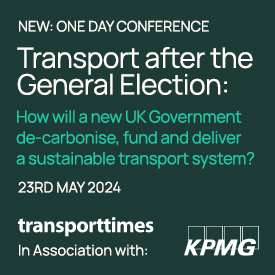The true measure of success of the latest transport technologies lies in the hands of the people who know the industry best

BY Brian O’Rourke
From self-driving cars to artificial intelligence (AI) – we’ve been through the tech hype cycles that were big news when they broke, and then just faded away or never came to pass. Only a few years ago articles were predicting that autonomous vehicles were the future of transport, and the rise of self-driving cars would be fully rolled out promptly. Taking a look on the streets today, I don’t see a self-driving car in sight.
Complex operating environment
First and foremost, the complexity of the bus industry’s operational environment poses significant challenges for AI integration. Unlike some sectors where data is neatly structured, the bus industry operates in a dynamic and multifaceted landscape. From route optimisation to passenger management, bus systems are influenced by a myriad of real-world factors including traffic patterns, weather conditions, and unforeseen events. While AI excels in processing large volumes of data, its effectiveness is contingent upon the quality and relevance of the information available. In the absence of clean, comprehensive and accurate data, AI algorithms will struggle to deliver meaningful insights and recommendations, and could possibly deliver misleading outputs.
Experts are indispensable
Moreover, the human element remains indispensable in the bus industry. While AI can streamline certain processes and augment decision-making, it will never replace the nuanced judgement and empathy that schedulers and wider industry experts bring to the table. Understanding passenger behaviour, commercial trade-offs, and unforeseen contingencies demand scheduler experience, intervention and adaptability.
As such, the role of technology and data in the bus industry should be viewed as complementary rather than substitutive. By empowering bus operators with intelligent tools and insights, technology can enhance efficiency and responsiveness while allowing schedulers to focus on the more important commercial tasks that require human ingenuity and intuition.
Social concerns
Furthermore, the implementation of AI in the bus industry raises important ethical and societal considerations. As AI systems become increasingly used, questions surrounding algorithmic bias have come to the forefront. The indiscriminate deployment of AI solutions could exacerbate inequalities and undermine public trust. In an industry that champions its role in serving diverse communities with unique needs and sensitivities, a one-size-fits all approach to AI implemented transport networks is neither feasible nor desirable. We need to continue to strike a balance between social equity and maximising efficiency when employing any of these systems.
Cost considerations
Additionally, the financial implications of AI adoption cannot be overlooked. While AI holds the promise of long-term cost savings and operational efficiencies, the initial investment required for implementation and infrastructure upgrades could be prohibitive for many bus operators, particularly those on tight budgets.
Benefits of technology
Despite these challenges, the potential benefits of data, technology and AI (in the right context) in the bus industry are evident. From predictive maintenance to more dynamic scheduling and data-powered solutions, these offer the promise of enhanced safety, reliability, and improved passenger experience. The core benefit for operators and authorities is that these systems have the potential to superpower existing experts. By taking away the more mundane, cumbersome data manipulation processes, these technologies give industry experts more time to collaborate, internally and externally, and use their years of experience to execute on their chosen commercial strategy, which should only result in improved bus services for cities and passengers.
While data and technological advances hold great promise for the bus industry, AI is not a silver bullet. As we journey forward, let us remember that the true measure of success lies not in the sophistication of our technologies, but in our ability to ensure that the people within the industry harness them for the greater good of public transport.
ABOUT THE AUTHOR: Brian O’Rourke is CEO and co-founder of CitySwift, an Irish-based intelligent transport data platform that helps public transport authorities and operators to deliver dynamic services that are ultra-efficient and reliable. CitySwift’s customer base features some of the world’s largest public transport bodies, including Go-Ahead Group, Transport for Wales, National Express Group, Translink, Oxfordshire County Council, and East Yorkshire Buses.
This story appears inside the latest issue of Passenger Transport.
DON’T MISS OUT – GET YOUR COPY! – click here to subscribe!








